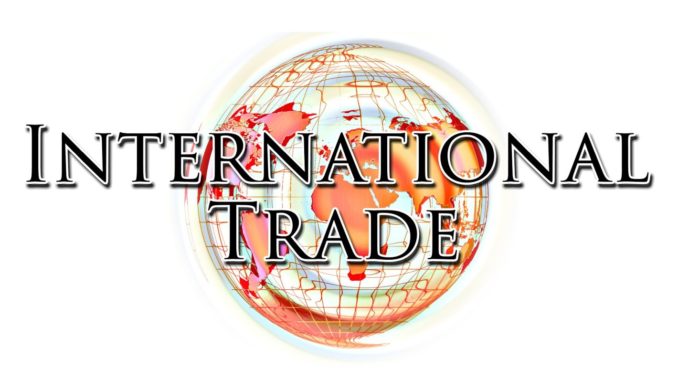
When life gives you lemons, tax ‘em.
That seems to be the motto of the “most conservative president since Ronald Reagan,” who is now pushing his administration to raise proposed tariffs on $200 billion in Chinese goods from the original 10% to 25%, officials from the White House confirmed Wednesday afternoon.
In a briefing with reporters, senior administration officials said that President Trump has directed the United States Trade Representative Robert Lighthizer to consider the increase as negotiations between Washington and Beijing have thus far shown few signs of progress.
The higher tariffs, targeting imports such as fish, petroleum, chemicals, and handbags, constitute another move in the ongoing trade dispute between the two countries following the impasse reached in May.
In the intervening months, Trump has announced a 25% tariff on $34 billion in Chinese goods – mostly industrial – and has begun preparations to apply another 25% tariff on a further $16 billion. The $50 billion in total targeted items includes products from sectors emphasized in China’s “Made in China 2025” plan.
(For more background information as well as a detailed list of goods included in both rounds of tariffs, check out the USTR’s website here.)
China responded with its own 25% tariffs on $34 billion in American goods (including soybeans, electric cars, seafood, and pork), which took effect July 6.
The talk of an increase in tariffs by Trump is likely a result of not only the stalled negotiations but also of the diminished value of the renminbi, which has seen an 8 percent decrease since April, making it more difficult for US exports to compete overseas.
Of course, as The New York Times points out, such an approach would be counterproductive:
Scott Kennedy, a China expert at the Center for Strategic and International Studies, said that ratcheting up tariffs to 25 percent would put substantial pressure on Chinese leaders to devalue their currency even more, to help offset any further losses to exporters. “We can expect further depreciation and vigorous internal debates about a one-off devaluation,” Mr. Kennedy said.
Administration officials said on Wednesday that due to the increase in proposed rates, the period for public comment will be extended by the USTR from August 30 to September 5. Four days of public hearings are scheduled for August 20-23.
Why It Matters
There are a few glaring problems here.
First, since Trump’s stated goal is now free trade with everyone, the “national security” excuse for implementing the tariffs is completely blown to smithereens. But who cares if the President lies?
Also, the lack of cohesion among White House advisers on the issue of trade continues. Treasury Secretary Steven Mnuchin has taken a more moderate approach and has sided against ramping up the threat of tariffs. Bloomberg reports that his representatives and Chinese Vice Premier Liu He are having “private conversations” seeking to reestablish negotiations. At the same time, though, key White House trade adviser Peter Navarro and former White House Chief Strategist Stephen Bannon have both been advocating for higher tariffs, according to The New York Times. This lack of a unified vision makes any long-term maneuvering involving tariffs even less likely to succeed.
Another problem is the effect the tariffs will have on the American economy. One need not search very far to find estimates of the job losses that will accompany them. An article at Time, for example, provides a concise list of these endangered jobs, including those in the solar power, automobile, and agricultural industries. Additionally, the nonpartisan Tax Foundation indicates that, as of July 20, “If all tariffs announced thus far were fully enacted, U.S. GDP would fall by 0.47 percent ($117.6 billion) in the long run, effectively offsetting one-quarter of the long-run impact of the Tax Cuts and Jobs Act. Wages would fall by 0.33 percent and employment would fall by 364,786.” Raising the tariff rates will make these matters worse as companies will be forced to swallow more costs themselves to avoid passing them on to consumers.
Remarkably, however, many Americans in the industries most adversely affected by Trump’s tariffs have expressed support for those particular policies. According to a July 29 CBS News/YouGov poll, 42% of “people in jobs that directly depend on agriculture or farming” say the President is doing a “good job” handling the trade issue. Also of note is that “One third of those in agriculture say they dislike the president’s approach but are at least glad he is trying something, as opposed to having left the matter alone.” And just last month, factory workers in a small Missouri town assured the Los Angeles Times that they still supported Trump “no matter what.”
“I support him 100%,” a machine programmer at one plant told the Times. “In fact, I’d like to shake his hand. He’s doing a great job.”
Responses like these might not be altogether surprising, given the defense of Trump’s tariffs by some in conservative media. But regardless of one’s opinion of Trump or his tariffs, the higher taxes on imports will drain the vitality from the recently recovered American economy and severely limit America’s global influence. And the lack of widespread push back from Americans whose livelihoods have been held hostage will discourage lawmakers in Congress from putting a stop to these policies, should they ever be tempted to do so.
But hey, there are always bailouts, right?

2 Trackbacks / Pingbacks
Comments are closed.